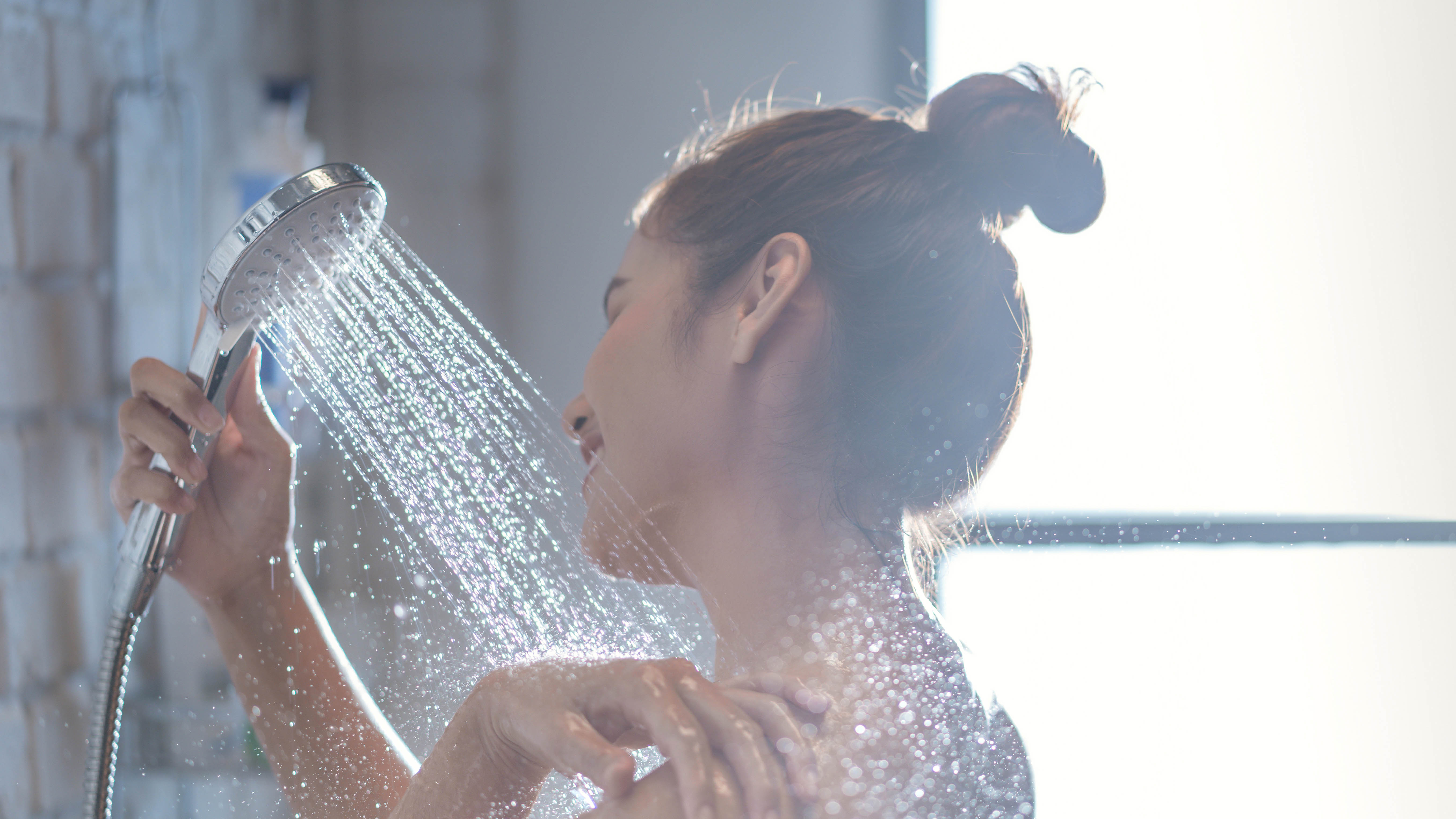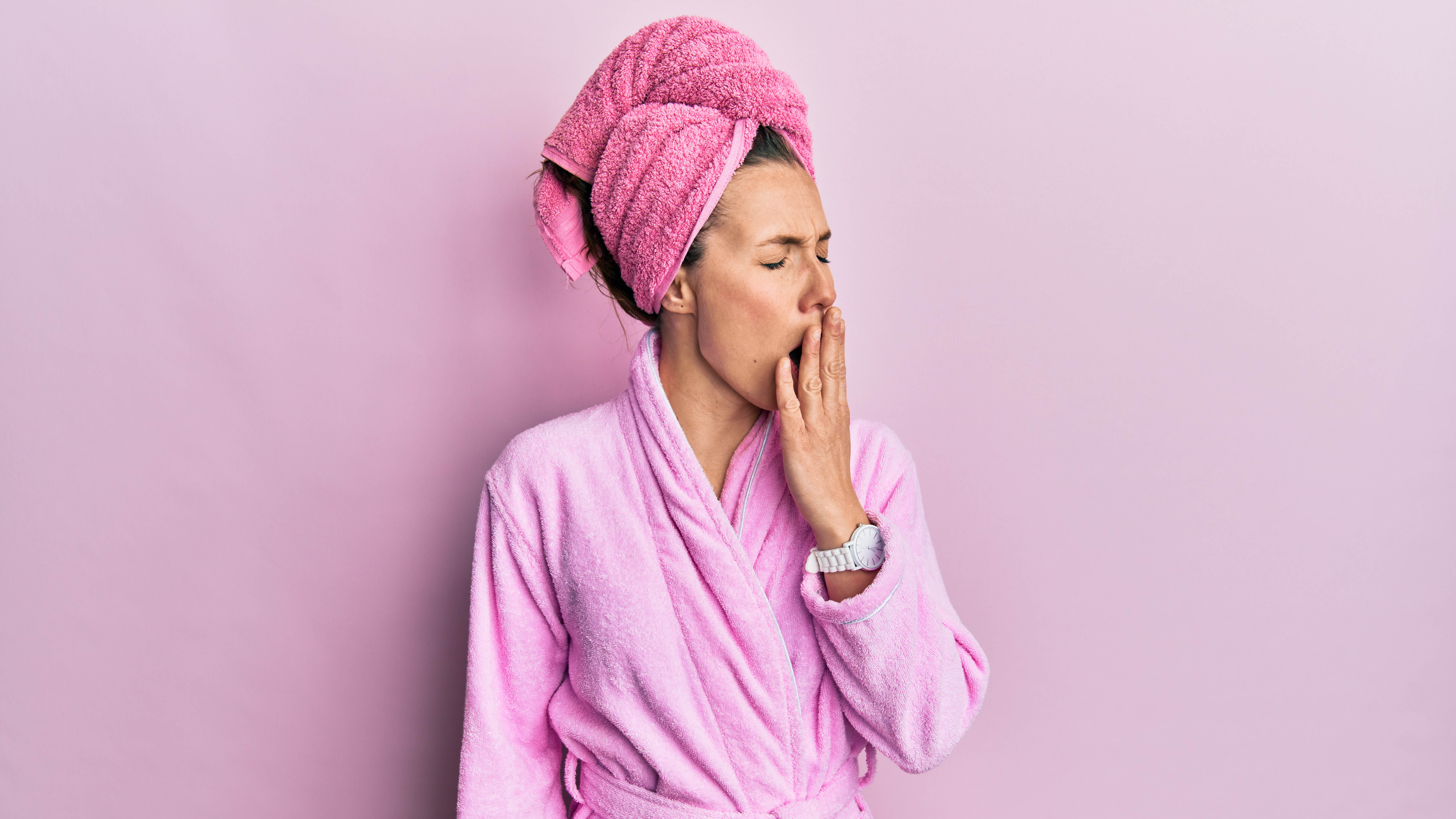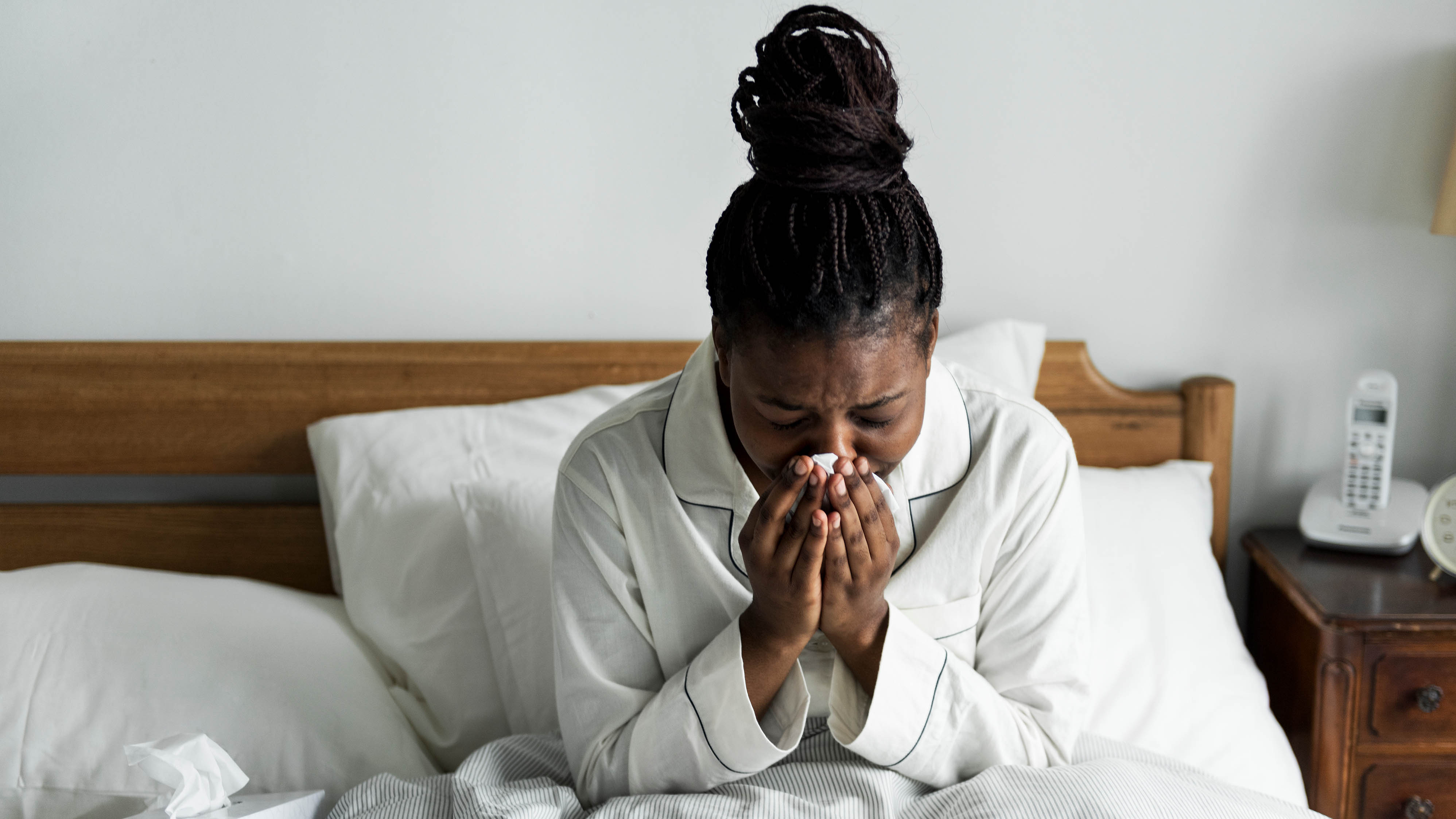Should you shower in the morning or at night? Here’s what the experts say
Is there a right time to shower? We spoke to the experts to find out

We are, by nature, creatures of habit. That means most of us shower at a similar time every day, whether in the morning or at night. Sure, we might break habits once in a while on the weekends, but for the most part, we’re comfortable sticking to routine.
Some of us swear by showering in the mornings before work, while others prefer to freshen up before we go to bed. But is one approach better than the other? Here, we will explore the benefits of showering at these two different times and get the experts to weigh in on areas including sleep and allergies. That way we can finally put this argument to bed.
Also, here are 7 hacks to make a small bathroom look bigger.
The benefits of showering in the morning
The first and biggest argument for showering in the morning is that it gets you ready to start the day. This is the go-to reason for most — showering first thing essentially washes away the sleep and drowsiness from the night before and makes the body feel revitalized. Some can’t imagine facing the day without a morning shower.
Our health and fitness editor, Jane McGuire, argues that showering in the morning wakes her up and gives her the opportunity to work out: "I'm a morning person — I like to get up and seize the day, getting out for a run or heading to the gym. I find that if I don't get exercise done first thing, it won't happen at all, so I'd rather wake up, exercise, then jump in the shower before sitting down at my desk for the day."

The next biggest draw to showering in the morning is from a hygiene perspective. We perspire every night as we sleep, which spreads to our sheets, pillows and mattress. On top of that, bodily oils as well as dust mites can be found in every bed, not to mention any external residue our bodies may have carried in.
A morning shower washes all of this away, so we don’t go to work smelling sweaty. You should be cleaning your mattress, pillows and bedding regularly to lessen the effect of this, but even with all this effort, you will naturally sweat at night so it can’t be avoided.
Sign up to get the BEST of Tom's Guide direct to your inbox.
Get instant access to breaking news, the hottest reviews, great deals and helpful tips.
The benefits of showering at night
And now for the counterpoint. First of all, showering at night is arguably better for your sleep. When we emerge from the shower, the rapid cooling of our internal body temperature can help encourage you to rest.
James Wilson, a sleep expert aka The Sleep Geek, recommends "showering (or alternatively having a bath) before bed, probably about 30 minutes to an hour before."
"The reason is, for our body to fall asleep and stay asleep more easily we need to create a drop in heart rate, be relaxed, and achieve a drop in core temperature," says Wilson. "Showering helps the latter, as when you step into the shower (a warm shower is best, not too hot, or too cold) your core temperature rises, and when we get out it drops, telling our body that it is time to start preparing for sleep."
Claire Davies, a sleep editor at Tom's Guide publisher Future, also points out that "warm showers have been proven to reduce cortisol, which helps get your body into a relaxed state for sleep."

If you suffer from allergies, you’re better off showering at night as well. This is because you will wash away any pollen and allergens that have collected on your skin through the day, which you would otherwise be transferring to your bed.
Andrew Murphy, MD, FAAAAI, and allergist at Suburban Allergy Consultants recommends that patients should "shower before they go to bed at night. The rationale being, that since we spend most of our indoor time in bed (and therefor in the bedroom) we are trying to make that room as allergen free as possible. So showering before bed may help 'wash' away any outdoor mold or pollens that has been “trapped” in their hair, on their skin or clothes."

You can also argue that showering in the evening would be more relaxing in general as you’re not rushed or keeping an eye on the clock if you have to go to work. However, longer showers will of course cost more in the long run, as you’re using more water and energy, so this can be seen as a pro and con.
While your bed will never be entirely clean, as mentioned earlier, showering at night will help keep it cleaner for longer because you naturally won't be spreading residue from the day in there. It’s also potentially cheaper to heat the water in the evenings, depending on your energy supplier. After all, you should take advantage of the cheapest time to do your laundry and save money.
Verdict: Should you shower in the morning or at night?
Overall, the answer to whether it’s better to shower in the morning or evening will depend on your preferences. From the above, it may seem like there are more benefits to showering at night. However, the pros for morning showers may outweigh everything else depending on what’s important to you.
If you need a pick-me-up first thing and struggle with sleep inertia, morning showers are likely more of a necessity than a choice. However, if you suffer from allergies or need help falling asleep at night, evening showers may be the way to go. You could always opt for both, but be warned that this will have an impact on your bills.
For more shower tips, tricks, and how-tos, check out our guides on how to clean a glass shower door, how to clean a shower curtain, how to unclog a shower drain and how to clean a shower head.

Katie Mortram used to be a Homes Editor for Tom's Guide, where she oversaw everything from kitchen appliances to gardening tools, as well as smart home tech. Specializing in providing expert advice for cleaning and home manintenance, she now works as Household Advice Editor for Good Housekeeping.
